The French elect their next president this Sunday and everyone in France they know a result: the next leader of the Republic will be a “Gaullist”.
From the far-right Marine Le Pen to the far-left Jean-Luc Mélenchon, including the current president Emmanuel Macron, who leads the polls, almost all the candidates present themselves, at least partially, as heirs to Charles De Gaulle.
In life, he was a man who generated strong divisive opinions. Today the vast majority of French people idolize this famous former president who led the French resistance against Nazi Germany during World War II.
In June last year, when France commemorated the 50 years after his deathMarine Le Pen paid tribute to him in an extensive forum in which she assured that “today, in the political spectrum, only the National Association (his party) defends his line”.
At the same time, the far-left Mélenchon published a blog entry in which he suggested that de Gaulle’s policy was similar to that of his program, particularly on the economic side: “He never bought the idea of the invisible hand of the market. . Liberalism is an imported product in France”.
Months later it was the turn of President Emmanuel Macron, who attended his grave to celebrate the fiftieth anniversary of his death, on November 9.
“Resilience and will. This spirit was embodied by Charles de Gaulle, committed to France in times of pain as well as in times of glory. This spirit is a heritage: that of France,” the French president tweeted.
They are three candidates with very different programs, who feel one way or another inspired by the same person.
Above left-right
Francis Choisel, a history professor at the Paris Catholic Institute, explains that in reality all French politicians can be “a little” Gaullist.
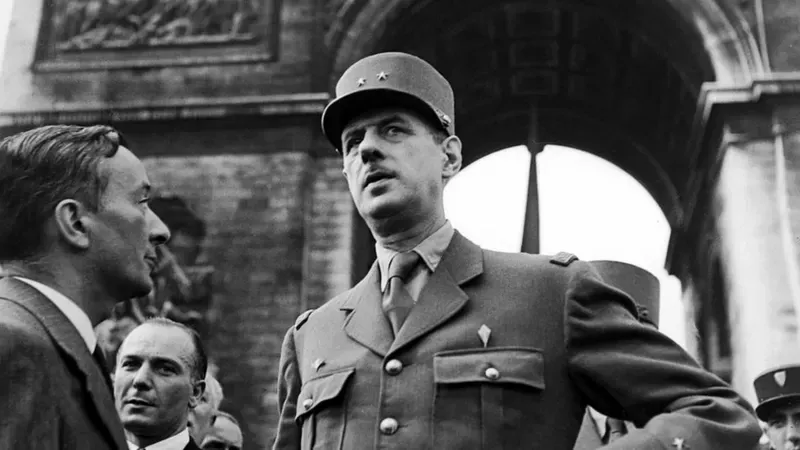
“But none is fully,” the author of “I will understand Gaullisme” (2016), a book that analyzes the thought and action of General de Gaulle.
His theory is that Gaullism has become a synthesis of all political classes. From the right, the left, the center and even from the extremes.
“When a movement claims to be the synthesis of all political tendencies, each party can recognize itself a little in it,” he says.
Charles De Gaulle always wanted to stand above the parties and bring all French people together, beyond the left-right divide.
Refusing to position himself within that divide, he created his own political movement in 1947, the “Rassemblement du peuple français” (Association of the French People), which added in a few months around one million affiliates.
The party died soon, in 1955. It was the only one in the history of Gaullism launched by General de Gaulle himself.
“Being above the parties also involves having ideas that can be taken up by all parties,” says Professor Francis Choisel.
“De Gaulle said that he was neither on the right nor on the left, which can also be interpreted as being on the right and on the left,” he adds.
Leader of Free France
Born in Lille on November 22, 1890, Charles de Gaulle was the leader of the Free French during World War II and the architect of the Fifth Republic French.
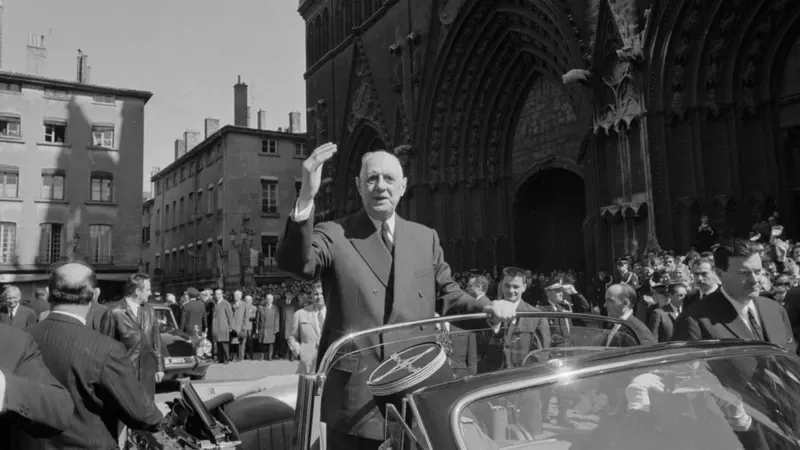
He grew up in Paris and chose a military career that saw him serve in World War I and earn various honors.
In the 1930s, he wrote books and articles criticizing France’s dependence on the Maginot Linea defense wall built by France along its border with Germany and Italy after World War I.
De Gaulle believed in the need to invest more in weapons and aircraft.
But his advice was not heeded and in June 1940 German forces invaded France without much effort.
As undersecretary for war and national defense, de Gaulle refused to accept the French government’s truce with the Germans and escaped to London, where he announced the formation of a government-in-exile.
return to paris
On June 18, 1940, on the airwaves of the BBC, Charles de Gaulle delivered a speech in the British capital in which he called on his compatriots to continue the fight against Nazi Germany.
This call was heard in France at 7pm and became one of the most famous speeches in French history.
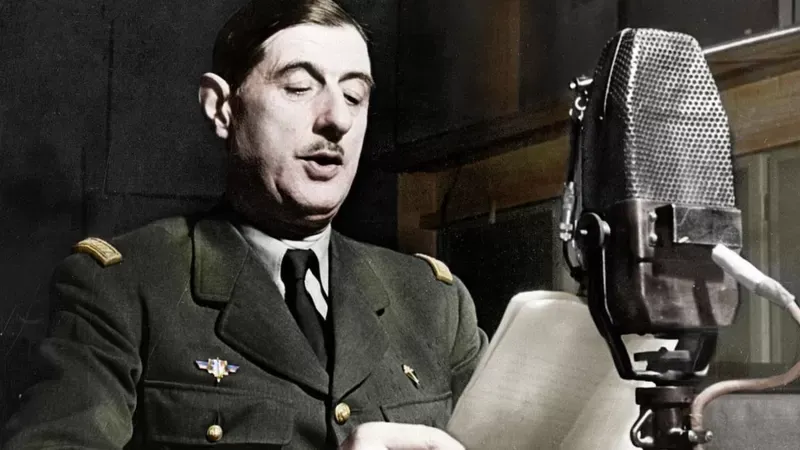
After the liberation of Paris in August 1944, de Gaulle was welcomed as a hero in the French capital.
After his return to France, he became the president of the provisional government and guided his country with the help of drafting a constitution on which the Fourth Republic was based.
But he resigned in 1946 when his wishes to create a strong presidency they were ignored.
Later, he tried to transform the political scene with his own party, but it failed and in 1953 he retired again.
“Father” of the Fifth Republic
In 1958, a revolt in French-controlled Algeria, combined with serious instability within France, prompted the fall of the Fourth Republic.
De Gaulle returned to lead France once more. The French approved a new constitution that same year and elected de Gaulle as president of the Fifth Republic.
Strongly nationalist, the so-called “architect of the Fifth Republic” worked to strengthen France financially and militarily.
prompted the development of nuclear weapons, withdrew France from NATO and vetoed the UK’s entry into the European Common Market. The general welfare of the French increased dramatically. France lived the most glorious moments of it.
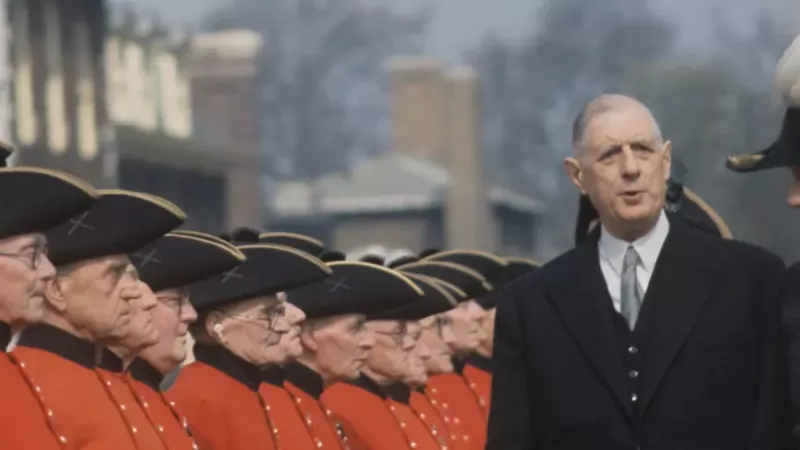
De Gaulle also granted independence to Algeria, in the face of strong internal opposition.
During the ten years he remained in power, his popularity was almost always above 60%until the last years arrived and the moment to say goodbye.
“I cease to exercise my functions as President of the Republic. This decision comes into force today at noon”, he announced in a press release sent on the night of April 28, 1969.
It was an abrupt farewell, a consequence of the results of the referendum organized the day before, in which 52.41% of voters rejected his plan for regionalization and reform of the French Senate.
De Gaulle had promised to resign if the French voted against the proposal.
He died shortly after, on November 9, 1970, as a result of a ruptured brain aneurysm. His death was kept a secret all night.
De Gaulle had made his last wishes very clear, written in January 1952: his funeral would take place in Colombey, in eastern France, and the ceremony would be “extremely simple”.
The most famous Frenchman of the 20th century
Within a few years of his death, de Gaulle was already recognized by many as the most important political figure in France in the 20th century.
Francis Choisel, from the Paris Catholic Institute, explains that a similar phenomenon had occurred in the previous century with Napoleon Bonaparte.
“Napoleon was questioned in his time and then, about ten years after his death, he became a reference and an important historical figure,” he continues.
In an interview he did paris match to the son of Charles de Gaulle, Admiral Philippe de Gaulle, who turned 100 in December last year, it is explained that everyone in France has appropriated a part of the former president, “even the communists.”
“All those who refer to General de Gaulle’s policy respect his Constitution, that of the Fifth Republic,” summarizes the French magazine.
Gaullism
Bernard Lachaise, professor emeritus of contemporary history at Bordeaux Montaigne University and member of the scientific council of the Charles de Gaulle Foundation, assures that Gaullism corresponds to a period of history and it is difficult to determine what De Gaulle’s position would be today.
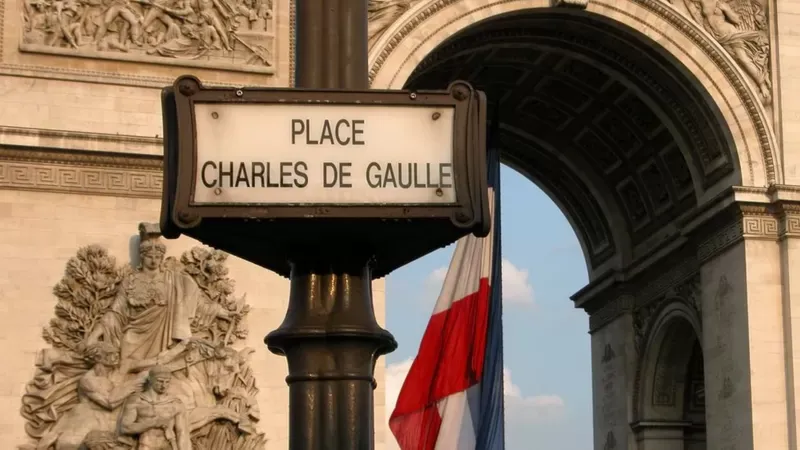
However, there are a couple of concepts indisputably Gaullist.
A first element of Gaullism, according to historian Francis Choisel, is patriotism. “Then there is humanism and concern for man,” he adds.
“There are other fundamental ideassuch as a strong state, national independence, the goal of a better society,” Bernard Lachaise, author of the book, tells BBC Mundo. “A la gauche du gaullisme” (To the left of Gaullism), published in January of this year.
“But the context has changed a lot,” he insists.
Choisel agrees that it is difficult to determine what Gaullism would be today, since today’s capitalism is “very different” from that of de Gaulle’s time.
“Since the fall of the Berlin Wall, after Reagan and Thatcher, The West has become much more liberal“, Explain.
“But it is true that the Gaullist vision gave the State an important role. His vision was certainly not that of the law of the market”, he adds.
Charles de Gaulle nationalized banking, aviation, services such as electricity and gasas well as the largest insurance companies in the country.
On that side, the French left could be identified as Gaullist, says Choisel.
“It is abusive to talk about Gaullism today”
But Professor Lachaise argues that in reality no party can really define itself as Gaullist today.
“It’s a misappropriation. No one can say at present whether de Gaulle would be in favor of leaving or staying in NATO or further integration of the European Union. It is abusive to talk about Gaullism nowadays”.
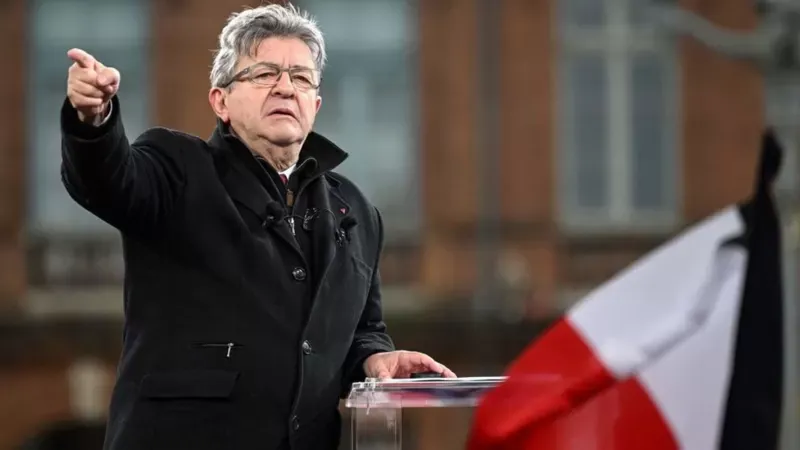
Many call themselves Gaullists today to attract votes and seek credibilityBoth experts agree.
De Gaulle has been the most popular president of the Republic in post-war France, according to various polls.
the french they adore de Gaulle so much that its name is carried by the most important airport in the nation, as well as squares, metro stations and even the only nuclear aircraft carrier in France.
“His image is overwhelmingly positive and that’s why the current candidates claim him, including Marine Le Pen, when at that time precisely the extreme right was one of his main opponents,” says Lachaise.
There are historical characters that transcend unexpectedly. But de Gaulle knew that his figure would occupy an important place in the contemporary history of France.
Shortly before losing the referendum that forced him to resign from the presidency, he had confided his fears to his Secretary of State for Foreign Affairs, Jean de Lipkowski.
“It’s true, The French don’t want De Gaulle anymore.“, said. “But the myth, you will see the myth grow. (…) Thirty years from now.”
He was wrong in estimating that it would take thirty years for the French to recognize his achievements.
But he was right that the “myth” would still be alive more than half a century later.
Source: Elcomercio

:quality(75)/cloudfront-us-east-1.images.arcpublishing.com/elcomercio/JZONU7EQ2VE6DHAKFGYPPE3SKE.webp)


:quality(75)/cloudfront-us-east-1.images.arcpublishing.com/elcomercio/6FEJGNHZIBGIBOCUUNLG7YBDC4.jpg)
:quality(75)/cloudfront-us-east-1.images.arcpublishing.com/elcomercio/BQGQ3Q766BEGXATYW56VSVIQEY.jpg)

